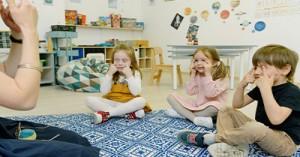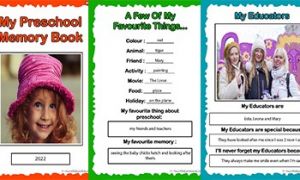Conflicts are a common part of relationships and can happen within the workplace. Each and every person has their own thoughts, ideas and perspectives and you can’t expect people to agree with each other all the time. Knowing how to handle a conflict in a positive way provides an opportunity to strengthen your relationships in the workplace.
Conflict Resolution Skills
Conflicts may trigger strong emotions which lead to disappointment, hurt feelings and resentment. This is why it’s important to successfully manage and resolve differences that builds confidence and trust. Here are some techniques on managing conflicts:
Relieve stress – Try and remain calm and focused in tense situations and in control of yourself. This will help you not to be emotionally overwhelmed in challenging situations. Find something that soothes you and focus on it.
Manage your emotions – You need to be able to recognize your emotions, how you feel or why you feel that way. You have to communicate what’s bothering you to smooth over disagreements. There is no need to hide or ignore feelings of being angry, sad or scared.
Non-verbal communication skills – During conflicts most information is exchanged non – verbally. Eye contact, facial expressions, tone of voice, posture, touch and gestures. During a conflict pay attention to the other person’s body language which may help you figure out what the person is really saying. Responding in a calm voice, a reassuring touch or a concerned facial expression will help diffuse a heated exchange.
Use humour and play – Responding to disagreements or arguments in a playful or humorous way can reduce tension and anger and put the situation into perspective. Humour can help say thing that may be difficult to say otherwise.
Managing and Resolving Conflict
Resolving conflicts requires self-control, empathy and emotional maturity. At times, it can be frustrating and scary. Ensure that the process is positive using the simple disagreement guidelines:
Make relationship your priority – Don’t focus on winning the argument. Be respectful of other’s points of view to maintain and strengthen the relationship.
Express your feelings – Communicate directly and honestly how you feel. If you start to lose control take a time out to gain control of yourself. Be specific about what is bothering you.
Focus on now – Forget about what’s happened in the past and focus on what you can do here and now to resolve the conflict
Pick your battles – Conflicts can be overwhelming, so consider whether the issue is really worthy of your time and energy.
One issue at a time – Try not to introduce other issues until each one is fully discussed and resolved. It’s best to deal with problems as they arise.
Avoid accusations – Talk about how someone’s actions made you feel as accusations will cause others to be defensive.
Forgive – If you’re unwilling or unable to forgive then trying to resolve it, is going to be pointless.
Enough is enough – If the disagreement is going nowhere, agree to disagree. Disengage and move on.
Two way responses – When you become silent and stop responding during a conflict it can often cause more frustration and anger. A positive outcome can only be attained through two – way communication.
Common Issues to Resolve
During conflicts, it’s important to be able to communicate your concerns which will assist you on getting the issue resolved. Here are some common issues that may cause conflicts and how to resolve it:
Not feeling comfortable – reflect on what may be making you feel uncomfortable. Get to know educators and families/ Share information about your own day and interests. Think about and communicate the most comfortable way for you e.g. email, telephone etc.
Having different values/opinions – try to see things from the other persons perspective. Find a common understanding. Give respect for the other person’s value and opinions. Ask questions to increase your understanding.
Hesitant to approach someone based on lack of English – consider your body language and how you are communicating e.g. crossed arms, tone of voice etc. Take notice of the non-verbal communication around you which could tell you how others are communicating.
Can’t express yourself – spend time thinking about what you want to say. Discuss with other educators your ideas. Ask another educator to help you when you feel stuck. Take your time. Check to see if the other person understands what you are trying to convey.
Feeling confused about the message you’re receiving - It’s alright to tell the other person that you don’t not understand and ask for clarifications and examples.
Learn How to Listen
During conflicts people don’t often communicate the issues at the root of the problem so it’s important to try and listen to what is felt and said. This will inform us of the underlying issue. To be a better listener:
- Listen to the reasons the other person gives for why they are upset
- Make sure your understand the other person’s viewpoint
- Repeat the other persons words to correctly understand their issue
- Give the person time to think before answering
- Wait until the other person has said everything before you add your own point of view
Use the following phrases while listening to other person’s point of view by encouraging the person to share their issues:
- ”I want to understand what has upset you”
- “I want to know what you are hoping for”
Ask questions to gain information, to clarify the issues rather than make assumptions:
- “Can you say more about that”
- “Is that the way it usually happens?”
Repeat what you have heard so you both able to see what has been understood:
- “It sounds like you weren't expecting that to happen”
Reflect feelings:
- “I can imagine how upsetting that must have been”
Express appreciation by validating the other persons concerns:
- “I really appreciate that we are talking about this issue”
- “I am glad we are trying to figure this out”
Resolving conflicts positively and with confidence is essential in building strong relationships to overcome challenges and be successful in work and life.
Reference:
Segal, Jeanne. Smith, Melinda. Conflict Resolution Skills, University Of Wisconsin, Madison, 2009







 As an Educator in Australia, your pay rate falls under the Children’s Services Award 2010. This award states the minimum amount that an employer can
As an Educator in Australia, your pay rate falls under the Children’s Services Award 2010. This award states the minimum amount that an employer can When working as a qualified Early Childhood Teacher (with a university degree) within a service, your rate of pay will come from the Educational Services
When working as a qualified Early Childhood Teacher (with a university degree) within a service, your rate of pay will come from the Educational Services When working as a Diploma Qualified Educator your pay rate is from the Children's Services Award 2010. This Award states your minimum rate of pay
When working as a Diploma Qualified Educator your pay rate is from the Children's Services Award 2010. This Award states your minimum rate of pay When working as a Cert 3 Qualified Educator, your pay rate is from the Children's Services Award 2010. This Award states your minimum rate of
When working as a Cert 3 Qualified Educator, your pay rate is from the Children's Services Award 2010. This Award states your minimum rate of Educational Leaders play a crucial role in their early childhood service by ensuring that the educational program aligns with best practices and supports the holistic
Educational Leaders play a crucial role in their early childhood service by ensuring that the educational program aligns with best practices and supports the holistic In early childhood education and care, ratios are more than a technicality—they are a frontline safeguard. Every child deserves responsive supervision, emotional connection, and developmental
In early childhood education and care, ratios are more than a technicality—they are a frontline safeguard. Every child deserves responsive supervision, emotional connection, and developmental Here’s a comprehensive Mobile Phone and Smart Watch Policy tailored for early childhood education and care (ECEC) services in Australia, aligned with the latest 2025
Here’s a comprehensive Mobile Phone and Smart Watch Policy tailored for early childhood education and care (ECEC) services in Australia, aligned with the latest 2025 With the new national child safety reforms kicking in on 1 September 2025, early childhood services like yours have a real opportunity to lead the
With the new national child safety reforms kicking in on 1 September 2025, early childhood services like yours have a real opportunity to lead the The Sea of Fish Challenge is a national initiative that invites children, educators, families, and communities to create and display fish artworks as a symbol
The Sea of Fish Challenge is a national initiative that invites children, educators, families, and communities to create and display fish artworks as a symbol Across the early childhood education and care sector, educators are sounding the alarm: current staffing ratios are insufficient to deliver safe, meaningful, and developmentally appropriate
Across the early childhood education and care sector, educators are sounding the alarm: current staffing ratios are insufficient to deliver safe, meaningful, and developmentally appropriate


